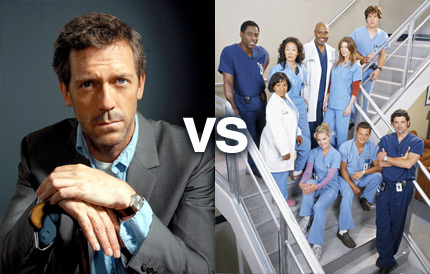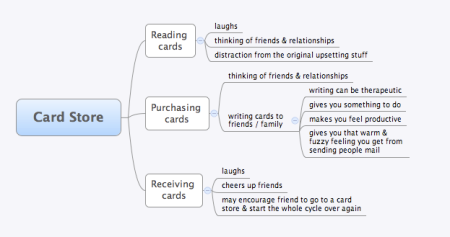This is the sixth post in the Grey Thinking series, Five of the most underrated coping skills.

This isn’t going to come as any surprise to those of you who have followed Grey Thinking for any length of time…. but watching DVDs of TV series is one of my favorite “coping skills.” I may be stretching the idea of a “coping skill” a little bit here, but anything to justify my House marathons…
I like to watch four hours of old Grey’s Anatomy episodes (especially during evenings that I’m depressed) because I can check out. I can focus on Meredith’s dark and twisty issues and secretly hope that Meredith and Derek get back together (clearly I’m in the middle of season three right now). And it’s not that House’s misery or Meredith’s really screwed up love life makes me feel better about my own or anything. I just like relationships. And sarcasm.
Checking out like this is probably not THE healthiest coping mechanism – but it’s much better than the eating disorder. Sometimes I am overwhelmed and I need to check out. It’s hard for me to turn off my brain, in a sense. My mind can wander while I read a book, exercise, walk the dog, clean, etc. For some reason though, my mind doesn’t wander when I’m watching House. Things seem so still and the chaos of my life is put on hold.
I say “DVDs” rather than House / Grey’s Anatomy because I have friends who use movies to cope. Personally, I get really impatient with movies and spend a lot of time thinking “is it over yet?” They’re more frustrating to me than soothing… but to each her/his own.


